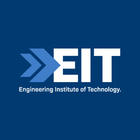52894WA Advanced Diploma of Applied Electrical Engineering (Renewable Energy)
52894WA Advanced Diploma of Applied Electrical Engineering (Renewable Energy)
This applied industry focused advanced diploma is designed to equip students to adapt and evolve with the new technologies in the energy sector. Upon completion of this program, you will gain skills and knowledge in electrical engineering fundamentals, electrical machines, transformers and switchgear, power system protection, power quality, energy efficiency,…
Categories
COURSE DESCRIPTION
This applied industry focused advanced diploma is designed to equip students to adapt and evolve with the new technologies in the energy sector. Upon completion of this program, you will gain skills and knowledge in electrical engineering fundamentals, electrical machines, transformers and switchgear, power system protection, power quality, energy efficiency, renewable energy sources and generation, smart grids, distributed generation and energy management.
Course Benefits:
• Skills in the latest electrical system and renewable energy technologies
• Practical guidance from experts in the field
• Global networking contacts in the industry
• Improved career prospects and income
• A world class Advanced Diploma of Applied Electrical Engineering (Renewable Energy)
Program Details
Students emerge from the course able to demonstrate specialised and integrated technical and theoretical knowledge, with considerable depth, in subject matter related to electrical engineering.
This program is designed to meet the specialised needs of industry.
On successfully completing the total of 17 modules and 2 units of competency, students will graduate with the Advanced Diploma of Electrical Engineering (Renewable Energy).
Graduates will have the knowledge and skills to contribute to the capacity of electrical engineering and related industries, particularly the renewable energy sector, to maintain their competitiveness in a global marketplace through the application of latest technologies, value adding to existing products, process and services and the development of new, sustainable and innovative solutions.
Six threads run through the program to give students maximum, functional coverage in the broad field of electrical engineering. These threads comprise electrical technology fundamentals, distribution equipment and protection, energy efficiency, operation and maintenance of electrical equipment, power protection, and distributed (embedded) generation.
As engineering paraprofessionals, graduates will be able to:
Recognise and interpret contemporary issues and trends in electrical engineering practice.
Interpret electrical drawings, documentation and schematics.
Identify and explain the fundamental features of power distribution equipment and protection techniques.
Appreciate the risks associated with electrical equipment and manage its efficient and safe operation.
Develop a broad knowledge of tools and techniques that can be applied to select, operate, troubleshoot and maintain electrical equipment.
Apply the principles and knowledge required for planning, operation, maintenance and troubleshooting embedded and/or distributed generation from renewable sources.
Apply a broad knowledge of fundamental aspects of the power industry to their roles in day-to-day operations.
Recognise the broader context of their work in terms of critical aspects of the power industry.
Communicate professionally and effectively.
Potential Job Outcomes
Electrical Engineers and Electricians
Project Engineers
Electrical Technicians
Field Technicians
Line Workers
Solar Electricians
Wind Service Technicians
Maintenance Engineers and Supervisors
Energy Management Consultants
Design Engineers
Engineering Project Managers
Instrument Fitters and Instrumentation Engineers
Consulting Engineers
Production Managers
Instrument and Process Control Technicians
The maximum amount of credit we can approve as a combination of articulated credit (EIT Advanced Diploma) and RPL is 50% for both bachelor’s and master’s courses. The maximum amount of credit provided with only external qualifications and experience is 33%.
REQUIREMENTS
Student applications are considered on a case-by-case basis and the following minimum entry requirements are to be strictly adhered to:
Applicants must have at least a Year 12 or Cert III trade qualification or equivalent in a related field;
AND
They must have at least 2 years’ work experience in a related field
OR
At least 4 years’ work experience in a related field – subject to acceptance of an application for Credit to Entry
AND
Satisfactory English language proficiency at an English pass level in a Senior Certificate of Education or equivalent;
OR
A specified level of achievement in a recognised English language test such as: IELTS (or equivalent) at a score of at least 5.5 (with no individual band score less than 5.0); or equivalent;
OR
Satisfactory completion of another course offered by EIT, or by another tertiary institution, in English.
EDUCATIONAL INSTITUTION
The Engineering Institute of Technology (EIT) delivers industry driven programs to equip its students with the skills required in the real industrial world. Its study options are available across Perth and Melbourne; and include classroom sessions, practical lab exercises, assessments, class discussions and self-study. Additionally, students enjoy access to industry experts based around the globe through live and interactive online presentations. All EIT programs provide access to remote laboratories and cutting-edge simulation software. Hands-on laboratory practicals are an essential component of EIT’s programs to ensure students put theory into practice. These hands-on workshops cover the major discipline-specific applied skills required for competency in engineering practice.




